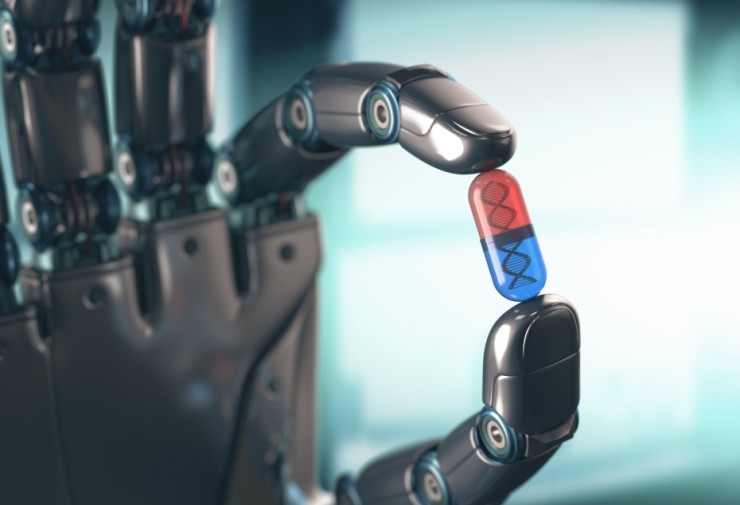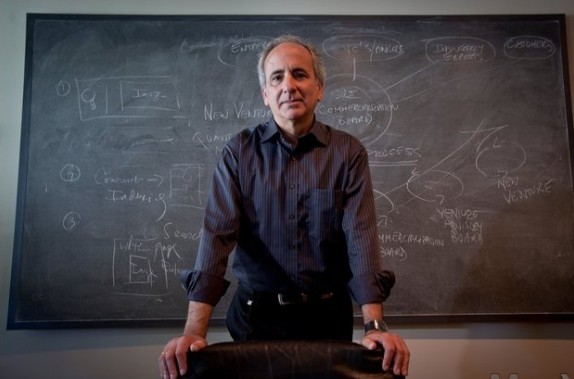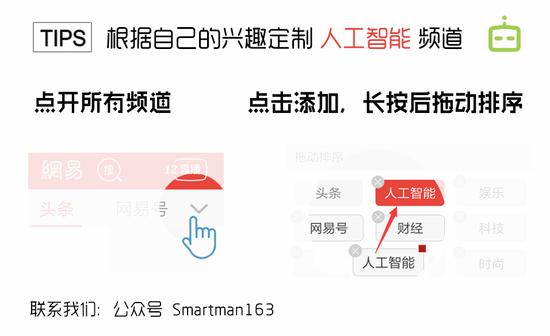(Original title: Siri Founder: AI Virtual Assistant will revolutionize the medical industry in the next five years)

Image source: ktsdesign / Shutterstock
Lei Feng network news, this summer, KPCB partner Mary Mecker (Mary Meeker) in the "2017 Internet Trends Report" pointed out that the medical field is full of opportunities. The report proposes that the healthcare market, driven by multiple convergence technologies, is approaching the "digital turning point" and is rapidly developing.
This is a conservative statement.
Lei Fengnet learned that according to Merkel's research, the amount of digital data in the world has increased by 48% year-on-year due to the increase in digital input since 2013. With the increase in the availability of information resources (and corresponding burdens), new changes have emerged in the healthcare and healthcare industries. Utilizing the explosive growth of these data will complete the transformation of market and service delivery specifications. Data-consuming AI solutions will occupy a central position in this revolution.
Merkel's analysis highlights opportunities for digital innovation in patient empowerment and health management, improving clinical pathways and protocols, and preventing health. Innovation in these areas is inextricably linked to the process of AI and machine assistance. But what does the AI-enhanced health care field look like in practice?
Data-driven AI technology is well-suited to address the long-term inefficiencies of the health market, potentially reducing hundreds of billions of dollars in costs while reducing the time burden on physicians. These techniques can be used to capture large amounts of data, including the patient's past and present status, the project's potential future status, to analyze data in real time, assist in the best way to reason about patient and physician goals, and provide support to patients and physicians. Only AI can achieve this mission and there is no other solution.
Technologists and investors 燰inod Khosla believe that 80% of the work done by human doctors will soon be replaced by technology, so doctors can focus their time on interacting with patients. He is not talking about the emergence of a robotic doctor. He is referring to the manual data consumption and generation process that currently consumes most of the time of doctors. It is actually more suitable for artificial intelligence. Juniper Networks research and analysis estimated that using chat bots only in healthcare customer service can save an average of more than 4 minutes per query, which is equivalent to an average cost savings of $0.50-0.70 per interaction." Let’s consider the bill Collisions or data entry troubles: These are tasks that can be time-consuming and easy to automate, neither reasonable nor requiring a doctor's skill level. Such chores can be delegated to artificial intelligence.
燗I era of medical care
Within five years, the health care industry may experience a complete transformation. Here are just a few examples:
1. The doctor will use the AI ​​Virtual Assistant (for example, using a software tool similar to Apple Siri, but specific to a specific medical application) to practice. Artificial intelligence assistants will provide real-time and ongoing support and advice for doctors to diagnose and treat. Many companies have begun multi-billion dollar artificial intelligence work. It is worth noting that IBM's Watson Robot or businesses such as Ada are like digital consulting nurses. And this is only the beginning.
In addition to the entire patient population, AI virtual assistants can absorb, analyze, and share large amounts of data related to individual patients. (The main part of this effort will be first and foremost to automate the maintenance of the privacy and security of patient personal data: this technology is also rapidly developing.) These data will include all types - patient history, emerging threats, and epidemiology Statistics, images, videos, location data, doctor's reviews, and treatments. 牎 庑┒ î±è‚† î±è‚† î±è‚† î±è‚† î±è‚† î±è‚† î±è‚† î±è‚† î±è‚† î±è‚† î±è‚† î±è‚† î±è‚† î±è‚† î±è‚† î±è‚† î±è‚† î±è‚† î±è‚† î±è‚† î±è‚† î±è‚† î±è‚† î±è‚†The beer is served as a virtual assistant.
2. Doctors with AI virtual assistants will be able to treat 5X-10X patients with chronic diseases as they did today, and they will do better than they did in the past. A recent research and market report showed that "a basic AI in clinical practice today ... can be used for alerts and reminders, diagnosis, treatment planning, information retrieval, and image interpretation." A large amount of necessary labor can be achieved through artificial intelligence. Automate and deliver. Physician AI virtual assistants will have the ability to communicate and support doctors in communicating with patients, answering routine questions, and making treatment options.
3. 燗I The virtual assistant will support patient and health personnel for health maintenance through continuous and real-time smart advice. Our greatest opportunity for AI enhancement in this area is to keep people healthy rather than waiting for them to retreat when they are ill. AI virtual assistants will be able to gain in-depth knowledge of diet, exercise, drugs, emotions, and mental state. Manually managing and documenting daily nutrition, fitness, etc. will always be tedious and difficult. However, new technologies, including computer vision, natural language understanding, and machine learning, provide interface features that make it easy for individuals to “show†or “talk†with artificial intelligence virtual assistants. In addition, AI virtual assistants can use other mechanisms to "know" what happens through motion detection, IoT sensor input, and effortlessly collect valuable, personalized data. Patients will have a continuous "friend" that provides digital health conscience, advice, support, and even encourages them to make healthy choices and pursue a healthy lifestyle.
4. Medical devices previously used only in hospitals will appear in the home and can be monitored more accurately and in a timely manner. A new generation of home health equipment has emerged that is tightly integrated with advanced imaging and sensor technology for tracking biometric variables and collecting more measurement data. For example, AliveCor's mobile pad connects to a smartphone and provides a personal EKG. This allows you to know whether your heart rhythm is normal or whether you have detected atrial fibrillation anytime anywhere. Another example is Scanadu's test suite (according to FDA considerations, coming soon), which uses AI to measure the level of chemicals in urine samples and the surface indicators of some health conditions.
5. Based on data collected from existing and widely adopted digital devices such as smart phones, new tools for affordable diagnosis and treatment of diseases will emerge in the future. Today's smart phones already have high-resolution cameras, accelerometers, gyroscopes, touch recognition, microphones, speakers, etc., all of which contribute to healthy applications. The subtle movements of holding a mobile phone may give clues to Parkinson's disease, and changes in the use of social networks may indicate depression. Emotional or speech pattern analysis may identify anxiety. This is just an example that can be analyzed through data that can already be obtained from personal use of smart phones.
6. Robots and home AI systems will help independent living patients. Robots leave the "cage". They used to help make major products such as cars, but now they will remind you in your home to take medicines and help with daily household chores, such as cooking and folding laundry. Like Japanese robot pets, they help the elderly Take a shower or enter the bath and even provide emotional support more and more.
prospect
You may think that AI is experiencing a hype cycle that began more than 50 years ago, leading to disillusionment. I disagree. With deep learning, the development of algorithms combining symbolic AI, computer vision, natural language and machine learning, and smartphones put the power of supercomputers in everyone's pockets and stay connected with us. - There is no doubt that we are on an exponentially growing AI curve.
Today, many familiar artificial intelligence engines such as Siri, Cortana, Alexa, Google Assistant, or any of the hundreds of "smart chat bots" are still immature and their functionality is very limited. But don't be misled – the best analogy is that they are learning like humans. They are still in their infancy and are just beginning to crawl. Medical AI virtual assistants can walk quickly and then run. In the next few years, they will talk and learn from users who will understand the context and provide positive help.
As these capabilities are applied to the health sector, they will make millions of citizens healthier, provide doctors with the support and time needed for practice, and save trillions of dollars in medical expenses. Welcome to the era of AI.

Norman Winarsky is the founder of Siri, a graduate student lecturer at Stanford Business School, and a consultant for Health2047 in risk development and commercialization. He and Henry Kressel co-authored "If You Really Want to Change the World: A Guide to Creating, Building, and Sustaining Breakthroughs" (HBR Press, 2015).
 燑br>
燑br>
USB Modem,Modem 4G,Wireless Modem,Cat4 Unlock Modem
Shenhzhen Tongheng Weichuang Technology Co., Ltd , https://www.thwclte.com